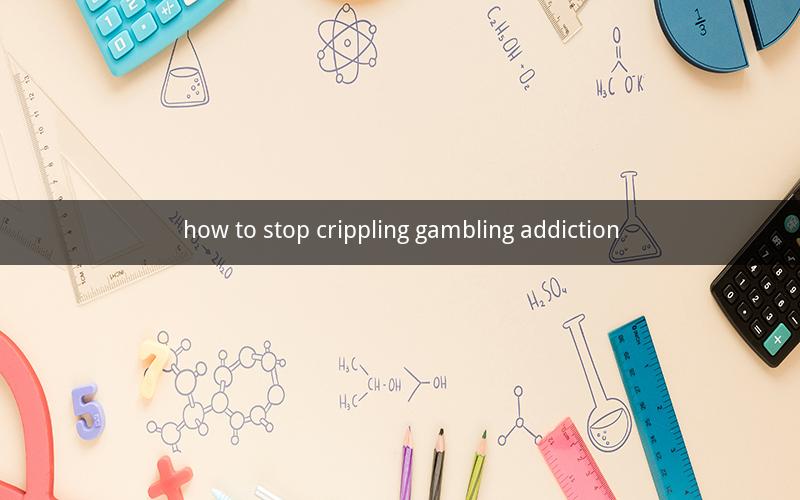
Table of Contents
1. Understanding the Nature of Gambling Addiction
2. Recognizing the Signs of a Problem
3. Seeking Professional Help
4. Building a Support System
5. Developing a Financial Management Plan
6. Changing Behavioral Patterns
7. Using Technology to Overcome Addiction
8. Learning to Cope with Triggers
9. Celebrating Small Victories
10. Maintaining Long-Term Sobriety
1. Understanding the Nature of Gambling Addiction
Gambling addiction, also known as problem gambling, is a behavioral disorder characterized by an uncontrollable urge to gamble, despite negative consequences. It is essential to recognize that gambling addiction is a real and treatable condition. Understanding its nature is the first step towards overcoming it.
2. Recognizing the Signs of a Problem
Identifying the signs of a gambling addiction is crucial for early intervention. These signs may include:
- Feeling restless or irritable when not gambling
- Needing to gamble with increasing amounts of money to achieve the desired excitement
- Repeated unsuccessful efforts to control, cut back, or stop gambling
- Gambling when you are feeling distressed, lonely, or guilty
- Using gambling as a way to escape problems or relieve stress
- Lying to family, friends, or therapists about the extent of your gambling
3. Seeking Professional Help
Professional help is vital for overcoming a gambling addiction. Therapists, counselors, and addiction specialists can provide personalized treatment plans tailored to your specific needs. Treatment may include individual therapy, group therapy, or a combination of both.
4. Building a Support System
A strong support system can make a significant difference in your recovery journey. This support system can include family members, friends, support groups, and professionals. They can offer encouragement, advice, and a listening ear when you need it most.
5. Developing a Financial Management Plan
Gambling addiction often leads to financial problems. Developing a financial management plan is crucial for ensuring that you do not return to gambling to relieve financial stress. This plan may include:
- Creating a budget to manage your income and expenses
- Selling unnecessary assets to pay off debts
- Seeking financial counseling to address any lingering financial issues
6. Changing Behavioral Patterns
Changing behavioral patterns is a critical aspect of overcoming a gambling addiction. This may involve:
- Identifying and avoiding triggers that may lead to gambling
- Engaging in healthy activities to replace gambling
- Developing new hobbies and interests to fill the void left by gambling
7. Using Technology to Overcome Addiction
Technology can be a double-edged sword in the fight against gambling addiction. While it can facilitate the addiction, it can also be a powerful tool for recovery. Some ways to use technology include:
- Installing apps that monitor and restrict access to gambling websites
- Using websites and apps that provide information and support for recovering gamblers
- Participating in online support groups
8. Learning to Cope with Triggers
Triggers are situations or emotions that may lead to relapse. Learning to cope with these triggers is essential for maintaining long-term sobriety. This may involve:
- Identifying potential triggers and developing strategies to cope with them
- Practicing mindfulness and relaxation techniques to manage stress and anxiety
- Seeking professional help to develop coping strategies
9. Celebrating Small Victories
Celebrating small victories can help maintain motivation and encourage continued progress. These victories may include:
- Staying sober for a day, a week, or a month
- Successfully completing a therapy session or support group meeting
- Making progress in financial management or personal development
10. Maintaining Long-Term Sobriety
Maintaining long-term sobriety requires dedication and commitment. Some strategies for long-term success include:
- Continuing to attend therapy sessions and support group meetings
- Remaining connected to a supportive network of friends and family
- Continuing to develop healthy habits and hobbies
- Being vigilant about potential triggers and relapse prevention
Questions and Answers
1. Q: What are the main causes of gambling addiction?
A: The main causes of gambling addiction include genetic factors, environmental influences, and personal vulnerabilities such as a history of trauma or mental health disorders.
2. Q: Can gambling addiction be cured?
A: While there is no permanent cure for gambling addiction, it can be effectively managed and controlled through treatment and ongoing support.
3. Q: How long does it take to recover from a gambling addiction?
A: The duration of recovery varies for each individual. Some may recover within a few months, while others may require years of treatment and support.
4. Q: Is it possible to gamble responsibly?
A: While some individuals may be able to gamble responsibly, many find it challenging to control their gambling behavior, especially when faced with triggers or stress.
5. Q: Can therapy help with gambling addiction?
A: Yes, therapy, particularly cognitive-behavioral therapy (CBT), can be highly effective in treating gambling addiction by helping individuals change negative thought patterns and behaviors.
6. Q: Are there any medications that can help with gambling addiction?
A: While there are no specific medications for gambling addiction, certain medications may be prescribed to treat underlying conditions, such as depression or anxiety, that contribute to the addiction.
7. Q: How can I tell if I have a gambling addiction?
A: If you are experiencing negative consequences in your life due to gambling, such as financial problems, relationship issues, or job loss, you may have a gambling addiction.
8. Q: Can a support group help me overcome a gambling addiction?
A: Yes, support groups can provide a sense of community, encouragement, and practical advice from individuals who have experienced similar challenges.
9. Q: What should I do if I think a friend or family member has a gambling addiction?
A: Encourage them to seek help, offer your support, and be patient. You may also consider attending a support group for loved ones of gamblers.
10. Q: How can I stay motivated during my recovery journey?
A: Celebrating small victories, maintaining a supportive network, and reminding yourself of the negative consequences of gambling can help keep you motivated during your recovery journey.